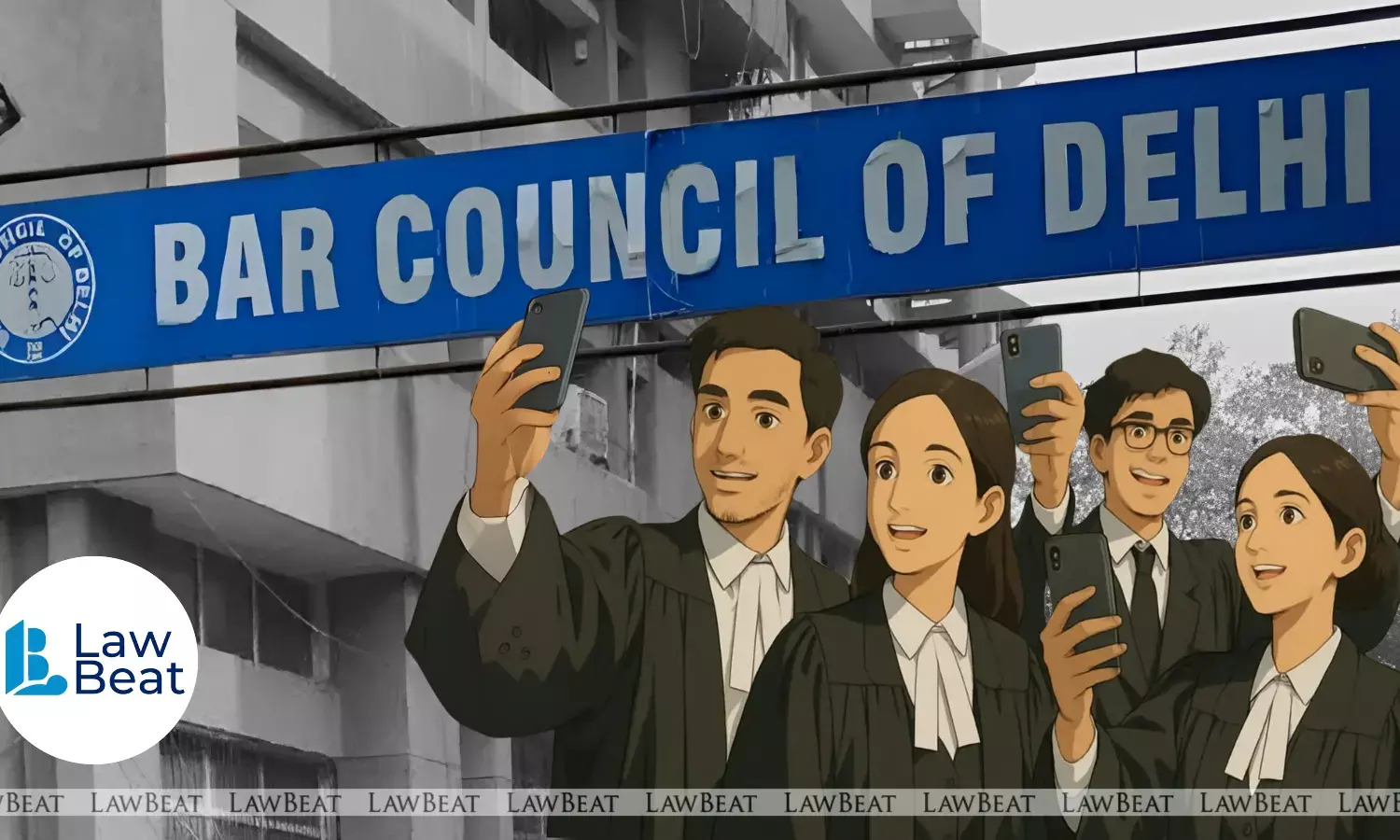Soliciting Work via Social Media Is Misconduct: Delhi Bar Council Cites Rule 36 to Warn Lawyers

In a strong message to the legal fraternity, the Bar Council of Delhi has issued a formal notice cautioning Advocates against advertising their services through social media platforms.
Citing Rule 36 of the Bar Council of India Rules, the Council emphasized that any form of direct or indirect solicitation of legal work, whether through promotional videos, circulars, personal interviews, or photographs related to ongoing cases, is a violation of professional ethics and amounts to misconduct.
The Council expressed “serious concern” over the rising trend of self-styled “legal influencers,” some of whom, it noted, do not even possess appropriate legal credentials. These individuals, the notice said, are not only undermining the dignity of the profession but are also spreading misinformation on crucial legal issues.
“Such methods clearly constitute unethical canvassing,” the Council stated, warning that such conduct attracts disciplinary action under Section 35 of the Advocates Act, 1961. Advocates found guilty risk suspension or even cancellation of their license to practice.
All Advocates currently posting promotional content on social media have been directed to remove such materials immediately. “Otherwise, action shall be initiated in individual cases,” said Bar Council of Delhi Chairman Surya Prakash Khatri, who signed the notice.
Recently, a representation was filed before the Chief Justice of India and the Supreme Court administration by the Supreme Court Advocates-on-Record Association (SCAORA), raising alarm over a growing trend of advocates filming video reels and creating promotional content within the Supreme Court premises, including inside High Security Zones, for dissemination on social media platforms.
Calling the practice unethical and potentially dangerous, SCAORA had urged the Court to issue clear guidelines prohibiting such activities.
The representation, dated July 25, 2025, was backed by signatures from several members of the Bar and highlighted concerns about a surge in videography specifically aimed at social media engagement, which allegedly amounted to indirect solicitation, a practice prohibited under the Bar Council of India Rules.
While some of these videos carried disclaimers claiming to be ‘informational’ in nature, the Association stated that they often functioned as surrogate advertisements or attempts at professional self-promotion.
SCAORA emphasized that such conduct eroded the dignity and decorum of the legal profession and undermined public trust in the justice system. “This is particularly serious when Advocates-on-Record participate,” the letter stated, citing the heightened ethical responsibilities of AORs in upholding professional standards.
The Association also flagged the use of courtroom clippings, either from live-streamed hearings or otherwise, being incorporated into such videos. It warned that these practices risked misrepresenting judicial proceedings, spreading misinformation, and promoting a culture of sensationalism around the Court's work.
The letter also stated the security risks involved in unauthorized filming within the Supreme Court, particularly in High Security Zones. It called such acts a serious breach of the security protocols in place to ensure the integrity and safe functioning of the Court.
Separately, a communication had also been addressed to the Secretaries of the Supreme Court Bar Association and SCAORA, urging them to take cognizance of the issue and consider issuing advisories to their members.
“While the Supreme Court is actively working on developing a secure live streaming mechanism to prevent unauthorized reproduction or editing of proceedings, these acts of misuse threaten to defeat that very purpose,” the letter stated.
SCAORA had assured the Court of its full cooperation in formulating and implementing appropriate regulatory measures and has expressed confidence that timely intervention will help safeguard the sanctity of the legal profession and protect the institutional integrity of the Supreme Court.
